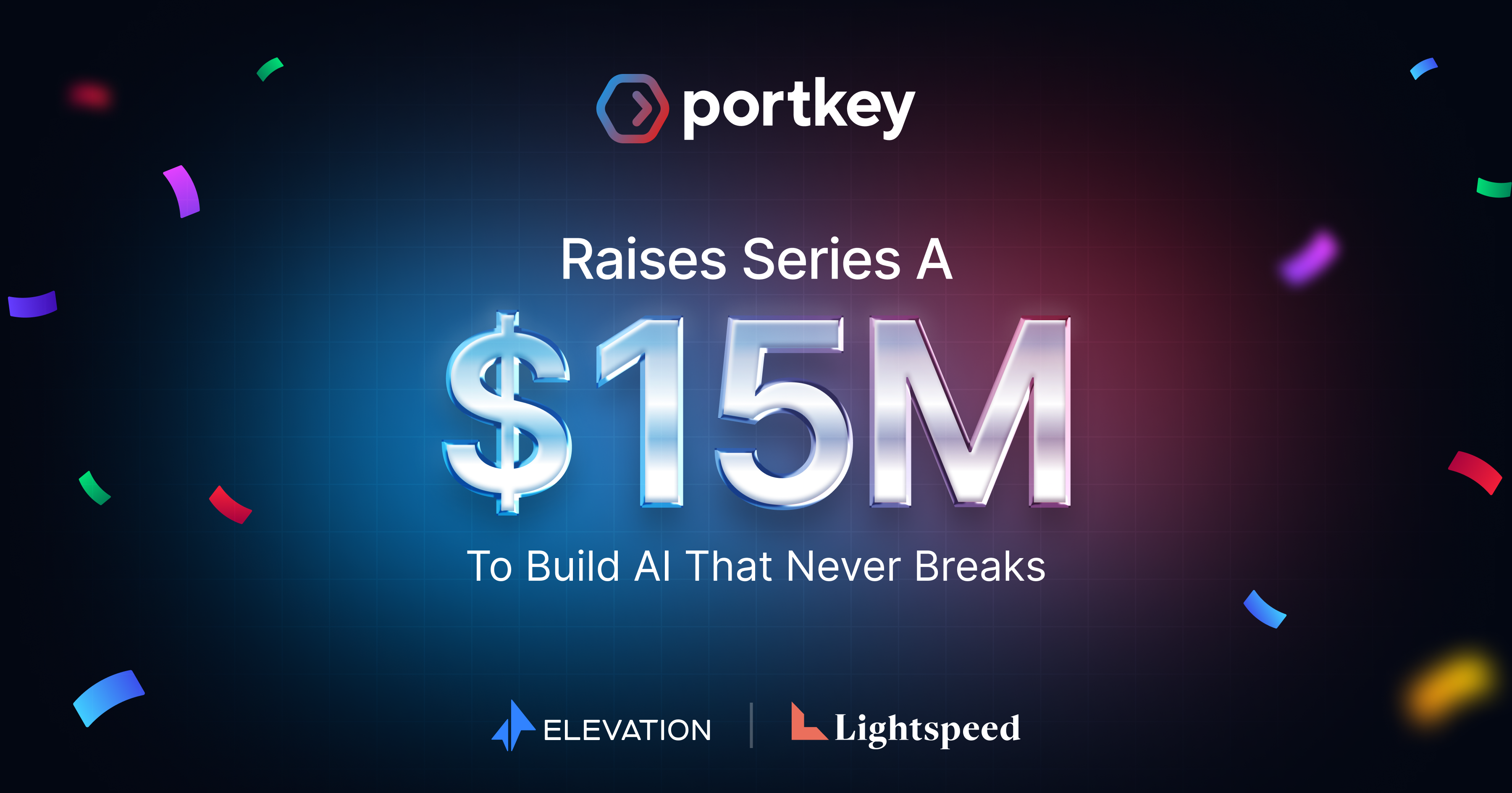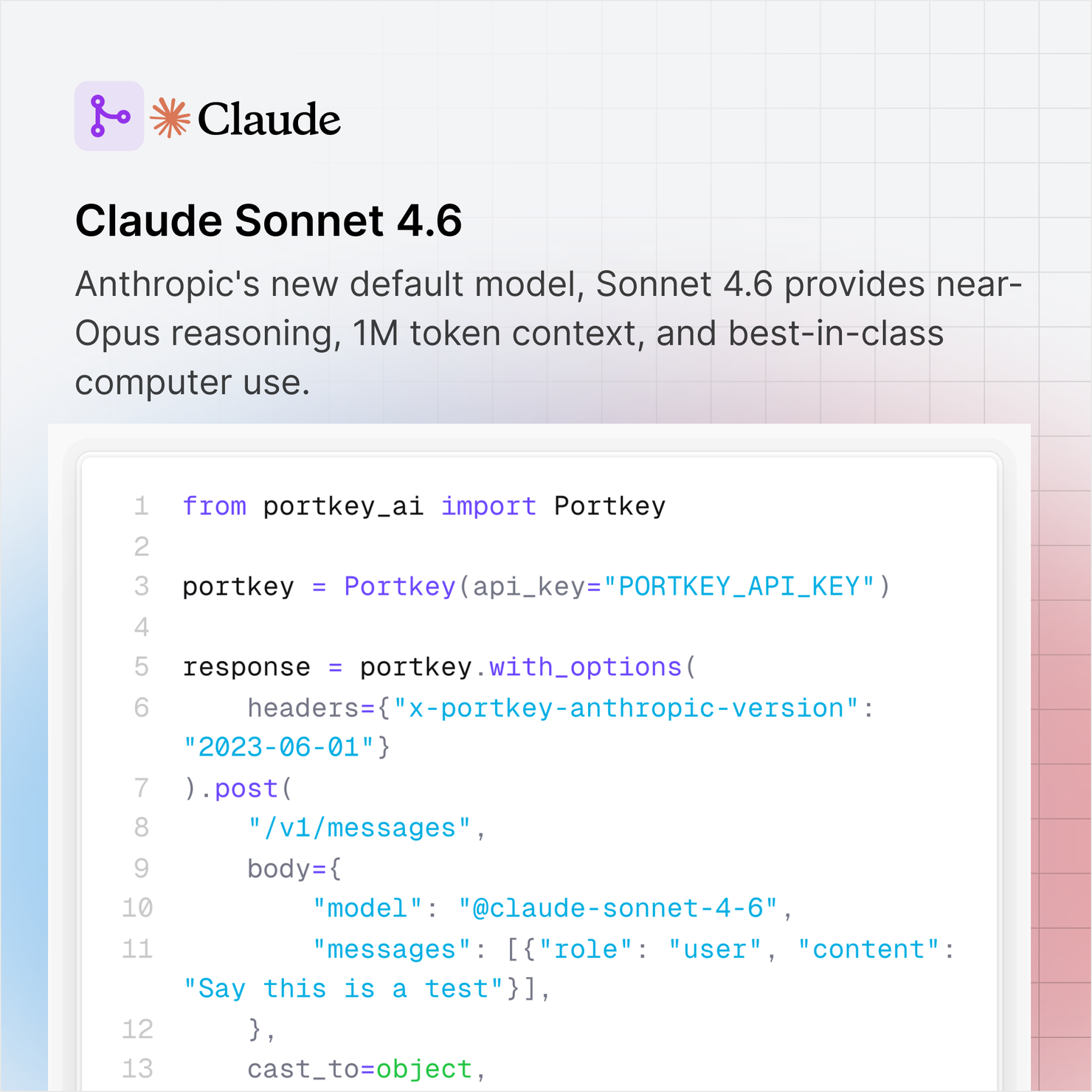Portkey has raised $15M in Series A funding 🎉
We have some exciting news to share: Portkey has officially closed our $15M Series A !!
Huge thanks to our investors at Elevation and Lightspeed, as well as our team and community for getting us here.
You have pushed us to be better, given us helpful feedback, and suggested the features that have made Portkey what it is today!
This funding will continue expanding our go-to-market presence, deepen our governance capabilities for agentic AI, and scale the gateway that enterprises rely on to run AI in production.
What’s more, we’re making our core enterprise gateway available for free so that all teams have access to governance and observability when they need it!!




